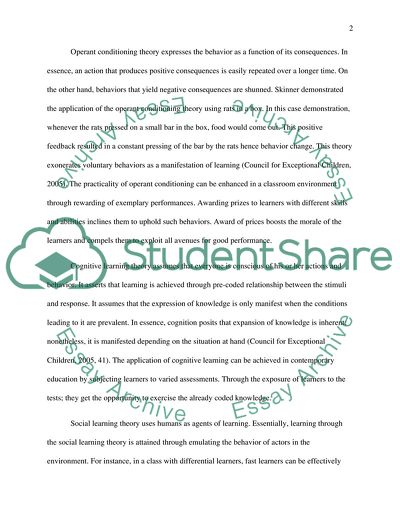Principles, Theories, and Practice of Learning Essay. Retrieved from https://studentshare.org/education/1682508-1-understand-the-application-of-theories-principles-and-models-of-learning-in-education-and-training
Principles, Theories, and Practice of Learning Essay. https://studentshare.org/education/1682508-1-understand-the-application-of-theories-principles-and-models-of-learning-in-education-and-training.


